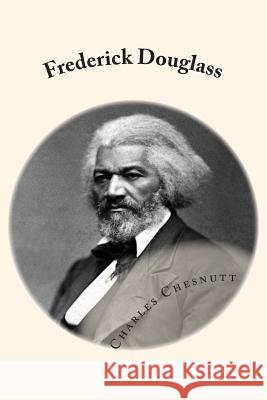Frederick Douglass » książka
Frederick Douglass
ISBN-13: 9781499147063 / Angielski / Miękka / 2014 / 72 str.
Frederick Douglass
ISBN-13: 9781499147063 / Angielski / Miękka / 2014 / 72 str.
(netto: 38,50 VAT: 5%)
Najniższa cena z 30 dni: 39,87
ok. 16-18 dni roboczych.
Darmowa dostawa!
Frederick Douglass lived so long, and played so conspicuous a part on the world's stage, that it would be impossible, in a work of the size of this, to do more than touch upon the salient features of his career, to suggest the respects in which he influenced the course of events in his lifetime, and to epitomize for the readers of another generation the judgment of his contemporaries as to his genius and his character. Douglass's fame as an orator has long been secure. His position as the champion of an oppressed race, and at the same time an example of its possibilities, was, in his own generation, as picturesque as it was unique; and his life may serve for all time as an incentive to aspiring souls who would fight the battles and win the love of mankind. The average American of to-day who sees, when his attention is called to it, and deplores, if he be a thoughtful and just man, the deep undertow of race prejudice that retards the progress of the colored people of our own generation, cannot, accept by reading the painful records of the past, conceive of the mental and spiritual darkness to which slavery, as the inexorable; condition of its existence, condemned its victims and, in a less measure, their oppressors, or of the blank wall of proscription and scorn by which free people of color were shut up in a moral and social Ghetto, the gates of which have yet not been entirely torn down. From this night of slavery Douglass emerged, passed through the limbo of prejudice which he encountered as a freeman, and took his place in history. "As few of the world's great men have ever had so checkered and diversified a career," says Henry Wilson, "so it may at least be plausibly claimed that no man represents in himself more conflicting ideas and interests. His life is, in itself, an epic which finds few to equal it in the realms of either romance or reality." It was, after all, no misfortune for humanity that Frederick Douglass felt the iron hand of slavery; for his genius changed the drawbacks of color and condition into levers by which he raised himself and his people. The materials for this work have been near at hand, though there is a vast amount of which lack of space must prevent the use. Acknowledgment is here made to members of the Douglass family for aid in securing the photograph from which the frontispiece is reproduced. The more the writer has studied the records of Douglass's life, the more it has appealed to his imagination and his heart. He can claim no special qualification for this task, unless perhaps it be a profound and in some degree a personal sympathy with every step of Douglass's upward career. Belonging to a later generation, he was only privileged to see the man and hear the orator after his life-work was substantially completed, but often enough then to appreciate something of the strength and eloquence by which he impressed his contemporaries. If by this brief sketch the writer can revive among the readers of another generation a tithe of the interest that Douglass created for himself when he led the forlorn hope of his race for freedom and opportunity, his labor will be amply repaid.
Zawartość książki może nie spełniać oczekiwań – reklamacje nie obejmują treści, która mogła nie być redakcyjnie ani merytorycznie opracowana.











